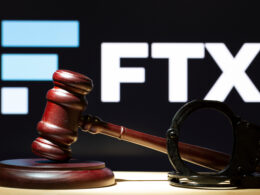The Chinese central government has recently announced its plans to create a comprehensive strategic document that will serve as a guiding framework for the development of China’s Web3 ecosystem. This initiative aims to support and foster the growth of various Web3 technologies, including non-fungible tokens (NFTs) and decentralized applications (DApps). In a letter released by China’s Ministry of Industry and Information Technology, it was stated that the document will also emphasize the importance of cross-chain interoperability, privacy computing, and smart contracts.
The decision to create this strategic document was made following a positive response to a proposal on Web3 industry development. The government intends to focus on strengthening technical research and supervision, allowing research institutions to explore areas such as cross-chain interoperability, privacy computing, and smart contracts. Additionally, it will prioritize the security, supervision, and governance of blockchain technology, along with the exploration of alliance chain technology convergence and improved data security. The Chinese government also aims to enhance international exchanges and cooperation by actively participating in global standardization activities related to Web3 to increase China’s influence and rule-making power in Web3 development.
Advancing Public Awareness and Innovation
A key aspect of the government’s strategy is to improve public understanding of Web3 technologies. To achieve this, the government plans to leverage science popularization platforms to promote awareness of distributed digital identity and digital asset management. It will actively support academic progress and technological achievements in driving innovation within the Web 3.0 industry.
China has already demonstrated its commitment to Web3 technologies through the deployment of various applications across sectors such as healthcare, education, and tourism. By collaborating with different departments, the government has successfully organized blockchain innovation pilot initiatives, leading to the implementation of use cases in energy, copyright protection, rule of law, and trade finance.
Standardization and Collaboration
Recognizing the importance of standardization, the Chinese government has established the National Blockchain and Distributed Accounting Technology Standardization Technical Committee. Through this committee, China has released its first domestic standard, the Blockchain and Distributed Accounting Technology Reference Architecture. This dedication to standardization ensures the harmonious development and widespread adoption of Web3 technologies.
China’s exploration of emerging concepts like Web3, Metaverse, and NFTs has gained significant momentum. In its pursuit of technological advancements and partnerships within the industry, China has established independent alliance chain platforms such as Changan Chain and Ant Chain.
Last week, China made headlines with its plans to utilize blockchain technology for the verification of real-name identities for its vast population of 1.4 billion people. The announcement was made by the Blockchain-based Service Network (BSN), which is China’s national-level blockchain initiative. The RealDID initiative, led by China’s Ministry of Public Security in collaboration with BSN, will enable users to register and log in to websites anonymously using decentralized identity (DID) addresses and private keys. This approach ensures the separation of personal information from business data and transactions.
In October, it was reported by Chinese state media that the country’s top six social media platforms, including WeChat, Sina Weibo, Douyin, Kuaishou, Bilibili, and Xiaohongshu, would require content creators with over 500,000 or 1 million followers to publicly display their real names or the names of their financial backers.
















